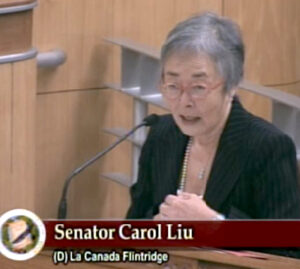
This story was updated on April 30 to include the status of the Republican-sponsored bills.
The Legislature’s top Democrats have made a comprehensive rewrite of the law on teacher evaluations a priority this session. But a fundamental disagreement over granting teachers the power to negotiate all aspects of evaluations, including whether to use student test scores as a factor, could doom prospects for passage, as it has in the past.
Last week, Democrats on the education committees in the state Assembly and Senate voted, at their leaders’ prodding, to keep alive two nearly identical teacher and administrator evaluation bills. Both Senate Bill 499 and its counterpart, Assembly Bill 575, will now face tough behind-the-scenes negotiations with school management groups, which view evaluation criteria as their exclusive right to determine, and teachers unions, which have a lot to like in the bills.
Under the current law, known as the Stull Act, teachers can negotiate evaluation procedures, such as the timing and frequency of classroom observations, but not the criteria for evaluations, such as how to judge how teachers plan their lessons, whether to use student surveys of teacher performance and what tests to use to measure student academic progress. The Stull Act requires that teachers be evaluated on instructional techniques, classroom management, implementation of the curriculum and student growth, but leaves the specifics of how to judge performance to districts.

Source: Califorina Channel webcast
Nancy Chaires Espinoza, legislative advocate for the California School Boards Association, testifies against SB 499.
Giving unions more negotiating power over evaluations would be a problem, Nancy Chaires Espinoza, a legislative advocate for the California School Boards Association, testified at the Senate Education Committee last week.
“We are going from developing evaluation standards to negotiating them,” Chaires Espinoza said. “That is a tremendous change.”
It creates opportunities, she said, for teachers unions “to leverage evaluation standards related to student achievement for gains related to salary” and would likely increase the frequency of an impasse in negotiations “and concerted actions like strikes.”
Sen. Carol Liu, D-La Cañada-Flintridge, a co-sponsor of the bill, said in response that “buy-in from teachers” is critical for evaluations to be useful in helping teachers improve, which she said should be the primary purpose of performance reviews. Teachers need to be at the table to discuss goals of an evaluation, Liu said, adding, “Their voice needs to be heard and heard loudly.” Effective districts already do this, she said.
Unbridgeable differences between unions and management groups were one factor that doomed the last comprehensive teacher evaluation reform bill in 2012. Another factor was the lack of assured funding for what would be a state mandate to train principals in more comprehensive evaluations and to provide help for unsatisfactorily performing teachers. There’s no secure funding either at this stage for SB 499 or AB 575.

Source: California Channel webcast.
Sen Carol Liu, chairwoman of the Senate Education Committee, testifies on behalf of her bill, SB 499.
Assembly Speaker Toni Atkins, D-San Diego, and Senate President pro Tempore Kevin de León, D-Los Angeles, are co-sponsoring the two evaluation bills in their respective chambers with the chairs of the education committees, Assemblyman Patrick O’Donnell, D-Long Beach, and Liu. Staff members said that Democratic leaders are coordinating their efforts and at some point will likely merge the two bills into one.
Democrats are under pressure to take some action in the wake of the Los Angeles Superior Court ruling in Vergara v. California, in which Judge Rolf Treu threw out state laws governing teacher dismissals, tenure and layoffs based on seniority.
The California Teachers Association and the California Federation of Teachers haven’t yet taken a position on Democrats’ AB 575 and SB 499. The unions do oppose AB 1495, sponsored by Democratic Assemblywoman Shirley Weber of San Diego, which contains elements of AB 575 and SB 499 without providing what unions want: expanding the scope of bargaining.
All sides agree that the Stull Act, written in 1972, should be revised if not replaced. The evaluation criteria haven’t caught up with evolving demands on teachers, including how to teach increased numbers of English learners and use technology in the classroom. Because the law stipulates that teachers can only earn one of two possible ratings on their evaluations – either “satisfactory” or “unsatisfactory” – and the law does not require that districts provide support for teachers with poor reviews, the Stull Act has proven largely ineffective in helping the bulk of teachers improve their craft. In many districts, time-strapped principals focus attention on building up documentation to dismiss the small percentage – often between 2 and 5 percent – of teachers they rate unsatisfactory.
Third rating, more specific criteria
Both AB 575 and SB 499 would create a third rating for teacher performance, but would give districts leeway to define what that rating would be, whether “needs improvement” or simply “meets expectations.” The lack of a three-tiered rating system is a chief reason why California is one of a handful of states that the federal Department of Education has denied a temporary waiver from the No Child Left Behind law. A waiver would give districts more flexibility to spend federal funding and create alternative ways to fix failing schools.
SB 499 and AB 575 would require districts to evaluate a broad range of skills that successful teachers need, based on the 30-page California Standards for the Teaching Profession, which the California Commission on Teacher Credentialing adopted in 1997. Many districts already incorporate them in their evaluations.
All sides agree that the Stull Act, written in 1972, should be revised if not replaced. The evaluation criteria haven’t caught up with evolving demands on teachers, including how to teach increased numbers of English learners and use technology in the classroom.
The standards examine in detail a half dozen areas of teaching practice, such as how teachers engage students and collaborate with parents, prepare lessons, manage their classrooms, master subject matter and determine if students are learning. The bills also would add a seventh criterion: how teachers contribute to student academic growth, which could be measured in multiple ways, such as scores on state standardized tests, students’ presentations and portfolios, or periodic district-assigned tests and grades.
SB 499 would require districts to include all seven criteria in an evaluation but leaves it up to districts to determine how much weight to give each factor. Under AB 575, each of the seven criteria must account for at least 10 percent of a teacher’s overall rating, with districts free to determine the mix for the remaining 30 percent.
The bills include comparable criteria for evaluating principals and administrators, such as how they build a constructive school culture, provide instructional leadership and use student data.
Like the Stull Act, both the Senate and Assembly bills would require that probationary teachers be evaluated every year and that teachers with less than 10 years of experience be evaluated every other year. Those who have taught longer than a decade would be evaluated every third year – a change from every five years under the Stull Act.
Both bills draw heavily from Greatness by Design, a 2012 report on improving teacher quality commissioned by State Superintendent of Public Instruction Tom Torlakson, who testified in support of AB 575 last week.
A co-chair of the committee that created Torlakson’s report, Long Beach Unified Superintendent Christopher Steinhauser, said in an interview that he had met with O’Donnell, AB 575’s author, and supports the bill. Other supporters include the California state PTA and Public Advocates, a civil rights law firm. Public Advocates particularly likes the bills’ requirements that school boards seek parents’ and the community’s views on how teachers’ performance should be measured before the district adopts the criteria.
Even in criticizing the current drafts of the bills during testimony, representatives of the California School Boards Association, the Association of California School Administrators, and nonprofit education equity groups Education Trust-West and Children Now praised aspects of the bills, and thanked Liu and O’Donnell for sponsoring them.
“Conceptually, we are in the same place, but sadly we are in opposition,” said Laura Preston, legislative advocate of the Association of California School Administrators.
Case for and against bargaining
Liu and O’Donnell will have to bridge disagreements on two contentious issues to get either bill passed: whether the Legislature should determine how much test scores should factor in a teacher’s evaluation and whether the criteria and standards for an evaluation should be bargained with teachers.
The Stull Act also requires that districts consider pupil progress on the state’s standardized tests as a factor, without saying how much. A study this year by the nonprofit advocacy group EdVoice of 26 districts serving 20 percent of the state’s students found that only seven districts actually used test score results in their teacher evaluations, while 14 didn’t include test scores in the teacher evaluation criteria stipulated in the collective bargaining agreement, and two explicitly prohibited their use.
Both the CTA and the California Federation of Teachers oppose using standardized test scores in evaluations, although they do support other ways to measure growth in student performance, including district-created tests. In comments before the Senate Education Committee, CTA lobbyist Norma Sanchez said the union would want a set of guidelines on how student testing data should be used for teacher evaluations.
Opponents of the bills insist that determining the standards and criteria for evaluations must remain a school board’s prerogative. Bill Lucia, CEO of EdVoice, called retaining school boards’ authority over evaluation criteria a non-negotiable “bright-line issue.” But CTA maintains that such questions are moot, because teachers unions already have the right to negotiate not only procedures, but all aspects of an evaluation.
The Stull Act was adopted before the state law establishing collective bargaining rights of teachers, contributing to the different interpretations. While the Public Employee Relations Board, which adjudicates disputes over collective bargaining agreements, has issued rulings that support aspects of CTA’s contention that unions have authority to negotiate evaluation criteria, there have been no court rulings to provide clarity. Lucia insists that CTA’s position is wrong.
Many districts, including Long Beach, San Juan Unified and San Jose Unified, have chosen to negotiate most aspects of evaluations and some have produced innovative evaluation systems as a result. Both San Juan and San Jose use teams of teachers and administrators to evaluate either probationary or all teachers and to recommend assistance for those needing help. Long Beach’s collective bargaining agreement includes four teacher ratings – distinguished, effective, developing and unsatisfactory – for each of the California Standards for the Teaching Profession.
Evaluations, Steinhauser said, are an iterative, year-long process that includes agreeing on goals and action plans. Test scores are among eight ways to measure student progress; others include discussion with parents, student self-evaluation, district pre- and post-tests and teacher observations.
Few districts have established the degree of collaboration between teachers and the district that Long Beach has. Opponents of SB 499 and AB 575 say giving teachers unions more power to bargain terms will negatively alter the balance of power.
“It will create incentives for teachers unions to demand or propose lower standards because they are positioned perfectly” to leverage higher pay and better benefits in return, Brian Rivas, legislative advocate for the advocacy organization Education Trust-West, testified in the hearing on SB 499.
Sen. Connie Leyva, D-Chino, responded that the idea that unions would advocate lower standards was “absurd.” Sen. Loni Hancock, D-Berkeley, who, like Leyva, supported the bill in the Education Committee, said, “If you want to hold teachers accountable as professionals, treat them as professionals and pay them as professionals.”
Both bills will go to their chambers’ Appropriations Committees. Negotiations with the bills’ sponsors are expected to intensify next month.
Republican bills defeated
The Democratic majority on the Assembly Education Committee rejected a package of Republican-sponsored bills on Wednesday that would have repealed the statute establishing teacher layoffs based solely on seniority, and would have lengthened the probationary period for teachers and revised the process for evaluating teachers.
The bills were drafted in response to the lawsuit Vergara v. State of California, in which a Los Angeles County Superior Court judge last year declared as unconstitutional five state statutes creating procedures to dismiss, lay off and provide tenure after two years for teachers. The California Teachers Association, a defendant in the Vergara case, is appealing the ruling, and the union and two dozen individual teachers from throughout the state opposed all of the Republican reforms in comments at the hearing.
Democrats on the committee didn’t defeat the bills outright. They referred them to interim study, an indefinite status putting off further action for a year. Assemblyman Rocky Chavez, R- Oceanside, a sponsor of the tenure bill, called this a convenient way to reject bills without having to go on the record as killing them.
AB 1044, sponsored by Assemblywoman Catharine Baker, R-Dublin, would not have abolished the use of seniority as a factor in deciding which teachers are laid off. It would have given districts the ability to consider teacher performance and other factors when considering layoff criteria.
Chavez’ bill, AB 1248, would have extended the current two-year probationary period by another year and granted tenure only if a teacher received positive evaluations in each year. Veteran teachers would lose tenure and return to probationary status if they received negative evaluations.
Assembly Republican leader Kristin Olsen, R-Modesto, offered AB 1078 as an alternative to AB 575 and SB 499, sponsored by Democratic leaders. It would have required that teachers be evaluated annually using four rating categories. Districts that didn’t include standardized test scores in teacher evaluations as one of several measures of student growth, as required under current law, would have been ineligible for waivers from the Education Code – a disincentive to discourage districts from ignoring the provision.
The only Democrat on the Education Committee who opposed sending the Republicans’ bills to interim study was Assemblywoman Shirley Weber, D-San Diego, a former San Diego Unified school trustee. Her evaluation bill, AB 1495, would have created a third rating category to provide help to struggling teachers who didn’t warrant dismissal. Opposed by the teachers unions, the bill had the support of the California Chamber of Commerce, EdVoice and the advocacy group Children Now. Weber asked the committee to move the bill forward to continue discussions, but members defeated it.
To get more reports like this one, click here to sign up for EdSource’s no-cost daily email on latest developments in education.











Comments (7)
Comments Policy
We welcome your comments. All comments are moderated for civility, relevance and other considerations. Click here for EdSource's Comments Policy.
Claudia 9 years ago9 years ago
I was very interested in his experience and involvement advocate and defend the quality of state education for our children in California, but our School District Oxnard, Ca. our children's rights have been violated and have harmed academically more 10 years, our children have not had academic achievement, most students in this district are English learners and we have granted the and appropriate programs and services as worse and drastic of this situation is that … Read More
I was very interested in his experience and involvement advocate and defend the quality of state education for our children in California, but our School District Oxnard, Ca. our children’s rights have been violated and have harmed academically more 10 years, our children have not had academic achievement, most students in this district are English learners and we have granted the and appropriate programs and services as worse and drastic of this situation is that the funds LCFF / LCAPs are not distributed correctly to improve and increase the services and programs for our children.
It is very unfortunate and distressing what is happening to our children in this district as both Board members and Superintendent work only for themselves no matter what happens to our children again this district schools achieving any goal or any Reading, writing, math and science.
It is increasingly dark and administrators of this district do not care about our children achieve their goals and have academic achievement, have violated and discriminated against race and language originated and above have also violated the rights and discriminated against children receiving education because of a disability.
Everything is very unfortunate budget of 30 million dollars are for our children improve academically single department services for English learners as background gave $ 1,058,000 sad and we parents mock us because we have sent suggestions as DELAC / ELAC and parents of the district but are not answered and continue to do what they want to intimidate parents do not listen to us. Can you suggest an organization that really wants to help us solve these problems legally?
Joan Jaeckel 9 years ago9 years ago
If students can opt out of high stakes state standardized tests – and they should be able to opt out – these tests are not a logical, humanitarian, or educationally valid basis for student, teacher, or school evaluation.
Paul Muench 9 years ago9 years ago
I’ve developed the impression that addressing the issue of teachers who are chronically absent is the best way to manage the bottom line of teacher competency. Has anyone researched this issue in depth? Creating a school ecosystem that supports teachers who can light the fires of student motivation and skillfully guide them on their learning journeys is a much broader cultural issue.
Replies
Brad Strong 9 years ago9 years ago
Good point, too narrow to be exclusive focus but very absent from the conversation. Not uncommon to have 10/20/30% chronically absent based on this report. http://www.nctq.org/dmsView/RollCall_TeacherAttendance
Gary Ravani 9 years ago9 years ago
This is Diane Ravitch writing on NCTQ: "With the release of the NCTQ ratings of teacher preparation programs, this is a propitious time to review its origins. It was created by the conservative Thomas B. Fordham Institute. It floundered, then was rescued by a grant of $5 million from Secretary of Education Rod Paige in the early days of the Bush administration. It is not a research organization. It is an advocacy organization." Ravitch worked at the Fordham … Read More
This is Diane Ravitch writing on NCTQ:
“With the release of the NCTQ ratings of teacher preparation programs, this is a propitious time to review its origins.
It was created by the conservative Thomas B. Fordham Institute. It floundered, then was rescued by a grant of $5 million from Secretary of Education Rod Paige in the early days of the Bush administration. It is not a research organization. It is an advocacy organization.”
Ravitch worked at the Fordham Foundation when NCTQ was launched. She knows of which she speaks.
When looking for solid information on any topic is is not considered “good form” to base conclusions on “advocacy organization(s).”
Don 9 years ago9 years ago
Gary, while you advise - "When looking for solid information on any topic is is not considered “good form” to base conclusions on “advocacy organization(s).” you seem to forget that you support CCSS, the product of one such advocacy organization par excellence, Achieve, Inc. which was foisted upon the nation through coercion, bribery and deceit. Some advocacy organizations are better than others, huh? Former Achieve (and IBM) chairman, Louis Gerstner, had this amazing … Read More
Gary, while you advise – “When looking for solid information on any topic is is not considered “good form” to base conclusions on “advocacy organization(s).” you seem to forget that you support CCSS, the product of one such advocacy organization par excellence, Achieve, Inc. which was foisted upon the nation through coercion, bribery and deceit. Some advocacy organizations are better than others, huh?
Former Achieve (and IBM) chairman, Louis Gerstner, had this amazing tale to tell about reform in the Wall Street Journal:
” Abolish all local school districts, save 70 (50 states; 20 largest cities). Some states may choose to leave some of the rest as community service organizations, but they would have no direct involvement in the critical task of establishing standards, selecting teachers, and developing curricula.
– Establish a set of national standards for a core curriculum. I would suggest we start with four subjects: reading, math, science and social studies.
– Establish a National Skills Day on which every third, sixth, ninth and 12th-grader would be tested against the national standards. Results would be published nationwide for every school in America.
– Establish national standards for teacher certification and require regular re-evaluations of teacher skills. Increase teacher compensation to permit the best teachers (as measured by advances in student learning) to earn well in excess of $100,000 per year, and allow school leaders to remove underperforming teachers.
– Extend the school day and the school year to effectively add 20 more days of schooling for all K-12 students.”
…Then there’s Gates, for whom you never had a kind word, though you now support his initiative despite the fact that he paid Achieve in part to write the standards under a process whereby not a single teacher was consulted.
Is CCSS, AKA national standards masquerading as state standards, the kind of local control you support?
Here what an Indiana anti-CCSS group had to say about Achieve and CCSS:
Common Core was not developed by the states but rather by the “COMMON CORE REGIME” along with Obama’s stimulus $$ and pushed by the duped Republican governors and business groups.
The push by a DC-based nonprofit called Achieve, Inc., which is the Education division of Rupert Murdoch‘s News Corp., under the auspices of the National Governors Association (NGA) and the Council of Chief State School Officers (CCSSO) in 2007. Neither NGA nor CCSSO (which are merely trade associations with private membership lists) had a grant of legislative authority from the states to develop national standards. In fact, Common Core was written by the same progressive education reformers who have been trying to impose a national curriculum for decades. This time, they were savvy enough to invoke the “cover” of NGA so they could paint Common Core as a “state-led” effort. To the extent states had any input, it was limited to offering suggestions that may or may not have been accepted by the people in control.
Gary, though your support for CCSS would in theory run counter to your express ideas about local control, could it be that the radical ideas at its core are the real reason you support CCSS under cover of “more critical thinking”? You should check into Bill Ayers connection to Achieve. You guys would get along great.
Progressive minded education advocacy group, Rethinking Schools had this to say about CCSS:
Rethinking Schools has always been skeptical of standards imposed from above. Too many standards projects have been efforts to move decisions about teaching and learning away from classrooms, educators, and school communities, only to put them in the hands of distant bureaucracies. Standards have often codified sanitized versions of history, politics, and culture that reinforce official myths while leaving out the voices, concerns, and realities of our students and communities. Whatever positive role standards might play in truly collaborative conversations about what our schools should teach and children should learn has been repeatedly undermined by bad process, suspect political agendas, and commercial interests.
TheMorrigan 9 years ago9 years ago
Whether or not you agree with Ravitch, the NCTQ ratings for colleges are just stupid. It is so full of holes to be laughable. How can we take them seriously regarding anything else they do?
I do agree, however, that is there is some form of link with absences and ineffective teachers. It certainly isn’t causal, though.